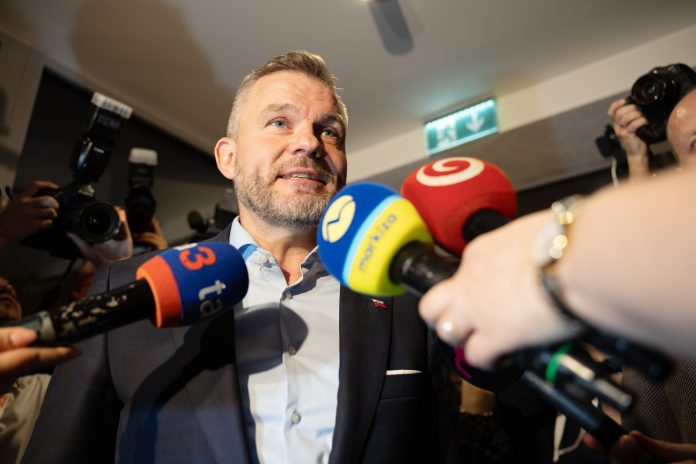Peter Pellegrini, speaker of parliament and a member of Fico’s ruling coalition, won 53.1 per cent of the vote in the presidential election, ahead of pro-European diplomat Ivan Korčok.
Slovakia held a second round of presidential elections on Saturday, 6 April. Parliamentary Speaker Peter Pellegrini, leader of the Voice – Social Democracy (Hlas-SD) party, won with 53.26 per cent of the vote
Pellegrini won 53.26 per cent of the vote, while pro-Western opposition candidate Ivan Korčok won 46.73 per cent, according to results in 99.66 per cent of constituencies.
During the campaign, Pellegrini accused Korčok, who favoured supporting Ukraine, of wanting to drag the country into war. The new head of state will now represent Slovakia at meetings of North Atlantic Treaty Organisation leaders. He told reporters in Bratislava after announcing his victory:
I’ll do everything to ensure that Slovakia remains on the side of peace and not war, and let anyone criticise me for it if they want.
Pellegrini thus strengthened the influence of pro-Russian Prime Minister Robert Fico on Slovakia, who returned to power last year. He has angered the mainstream EU and its allies by criticising NATO and saying he intends to normalise relations with Moscow. Slovakia’s four-time prime minister has also provoked public protests and EU criticism over his decisions to curb the fight against corruption and suppress independent media, and Pellegrini’s victory eases his path to legislation.
Pellegrini, as parliament speaker, played a crucial role in pushing through a contested reform of the Fico judiciary that has caused alarm in the EU. He signalled on Sunday that his support for the prime minister’s agenda would continue.
In his first speech since his victory, Pellegrini pledged to defend Slovakia’s interests and support Fico’s government:
The government can count on that – as long as it fulfils its programme – it doesn’t have to fear that the presidential palace will become an opposition centre harming the cabinet, as it was in the past.
Pellegrini entered his political career in 2002 as an assistant deputy for Fico’s Smer party. He was elected as a Member of Parliament in 2006 and since then his ascent in the political sphere has been remarkable. He has served as Deputy Minister of Finance, Minister of Education, Speaker of Parliament, Deputy Prime Minister for Investment and Prime Minister.
